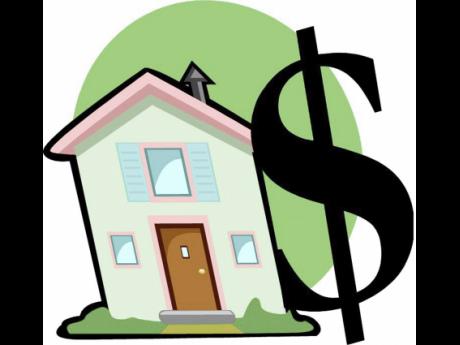Oran Hall | NHT contribution gap
QUESTION: My mother is 50 years old and I would like to assist her to get a house of her own. She found a job in 2007 that paid her NHT contributions for her. She resigned in 2014 after making approximately seven years of contributions. Since 2014 she has not been making contributions up to this point. She does not mind if it is a scheme house or on the open market. Should she apply as a self-contributor starting today and contribute for a year before applying for a mortgage, or should she make payments for the gap years of 2014 to 2017 before applying for a loan? I am concerned as I am not sure if she starts contributing as a self-employed person she will lose her points from the old years of 2007 to 2014.
Alesia
FINANCIAL ADVISER: To qualify for a National Housing Trust (NHT) benefit, contributors should be currently contributing to the NHT; have made at least 52 weekly contributions, 13 in the last 26 weeks just before the date of application; earn an income that allows them to repay the loan; and have paid the interest on any outstanding contributions due in the past three years.
The NHT recognises the following as self-employed persons:
- Persons residing and working in Jamaica but not making contributions to the NHT, but they must first register as self-employed persons with the NHT to be able to make their contributions;
- Individuals working for themselves, who may or may not have anyone else working for them, or who have employees who are not required by law to make NHT contributions;
- Persons who are already earning and contributing under the regular payroll of a company or agency but who are also involved in additional income earning activities;
- Persons employed to registered companies as private consultants/contractors, that is, persons employed under a contract for service who, for example, provide their own tools and other resources to do the job; and
- Directors of companies who are paid directors' fees.
These persons pay 3 per cent of gross earnings as NHT contributions.
There are other categories of self-employed persons: Jamaican citizens employed to embassies, United Nations' agencies, high commissions, and consulates situated in Jamaica; and domestic workers, gardeners, and local caregivers who work in the homes of their employers.
These individuals generally pay 2 per cent of gross earnings as NHT contributions.
You have not said explicitly that your mother is self-employed. If she fits any of the above, she is self-employed and would be required to contribute for at least six months before becoming eligible for a benefit. You have not said if she was self-employed or otherwise employed in the "gap years" of 2007 to 2014.
In the past, when contributions were paid directly to the NHT, she would have been required to make payments there as a self-employed person and they would have required her to pay a penalty for the amounts which were due and not paid. Self-employed persons now pay their NHT contributions to Tax Administration Jamaica, which requires that interest is paid on late payments.
In any case, a change of status to self-employed would not put her or any other contributor at a disadvantage, and you should note that the points system applies to applicants for NHT scheme houses. In such a case, a period of not contributing would not disqualify a contributor whose contributions are current.
If she did not make contributions in the 2007 to 2014 period because she was not earning an income, she would not have a liability to the NHT, and if she is not earning an income now, she cannot register as a "self-contributor", by which it seems you mean self-employed.
If it is that your mother is not employed, a likely solution would be for her to, indeed, become self-employed and earn enough to make her eligible for a benefit from the NHT.
- Oran A. Hall, principal author of 'The Handbook of Personal Financial Planning', offers personal financial planning advice and counsel. Email finviser.jm@gmail.com

